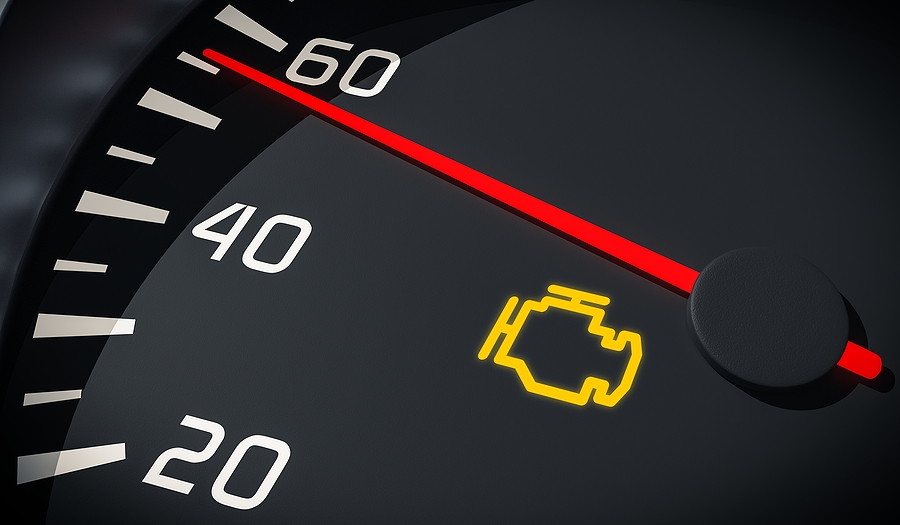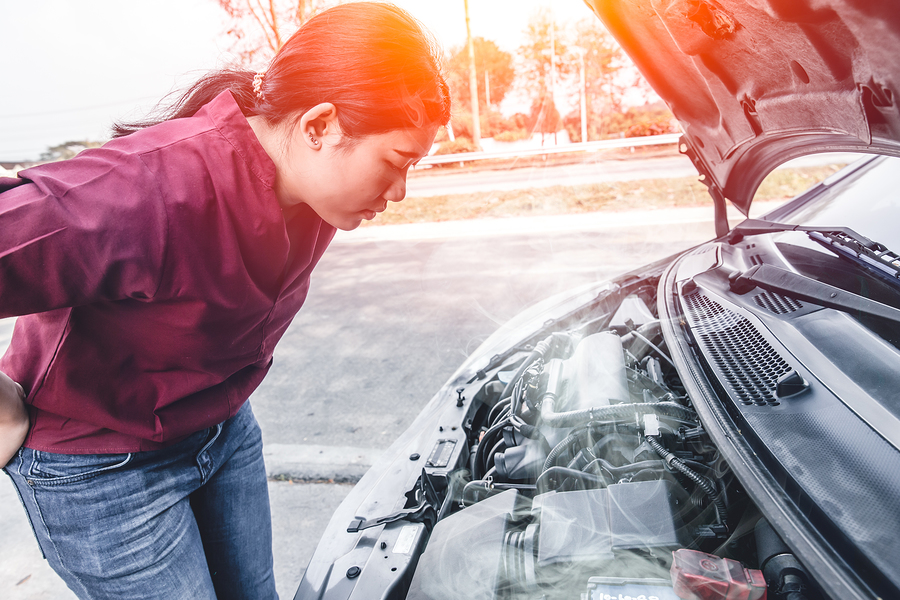Uh oh. Your Check Engine Light icon just lit up. And instead of being the usual solid symbol or phrase, it is flashing. Is this nothing to worry about? Does this mean something serious? Continue below to learn some of the most common reasons why Check Engine Lights come on, including the meanings behind solid and flashing symbols.

Check Engine Light Diagnosis
Before diving into the difference between a flashing Check Engine Light and a solid one, let’s cover some of the most common reasons why Check Engine Lights illuminate in the first place. Answer some questions, like “Did you just add fuel to your tank with gas?” or “Did your car jolt or vibrate the last time you drove it?” The answers to these questions can help you narrow down the cause behind the symbol. If you forgot to tighten your gas cap all the way, for instance, your car’s onboard computer system will trigger the Check Engine Light to turn on. If you felt a jolting, jerking, or vibrating movement from your car the last time you drove it, the culprit could be a quick fix like a worn spark plug.
Flashing Check Engine Light Versus Solid
For most vehicles, the Check Engine Light will illuminate in all its glory as a solid symbol or phrase to warn against minor to moderate problems. Some vehicles have a Check Engine Light that comes up solid or flashing. In vehicles that only have a solid Check Engine Light symbol, the color of the icon might change from sun colors to red to indicate a more serious issue.
If the symbol or phrase are flashing, it generally indicates a more serious problem. A flashing Check Engine Light suggests that you have an automotive emergency and should have your vehicle towed, that’s right, towed to the nearest mechanic shop for diagnosis. Driving with the Check Engine Light on is dangerous because it poses several safety risks, but also does a lot of damage to a vehicle.
Common reasons for a flashing Check Engine Light are engine misfiring and overheating. Both of these mechanical defects can do significant damage to the internal parts of the engine block, including cylinders, pistons, spark plugs, and more.
Red Check Engine Light
As mentioned, in addition to solid and flashing, Check Engine Lights can also be different colors, which might signify different types of mechanical needs. In most vehicles, a yellow or orange Check Engine Light denotes a minor to moderate mechanical, safety, or performance issue in a vehicle. If the light turns red, it is indicating an automotive repair emergency. In this case, a car should never be driven.
Did your car’s diagnosis come back totaled? Not to worry! You can still make a generous profit by selling it to a trusted Cash for Cars Company near you! Contact GC’s Junk Cars at 317-608-2188 to speak with a certified Indianapolis junk car buyer for details on how to get started! We offer free junk car removal and accept all old or broken auto parts!
Related Posts:
How to Tell if Your Car Has Bad Spark Plugs
Does a Check Engine Light Mean My Car is Totaled?
Frequently Asked Questions About Engine Flushes


